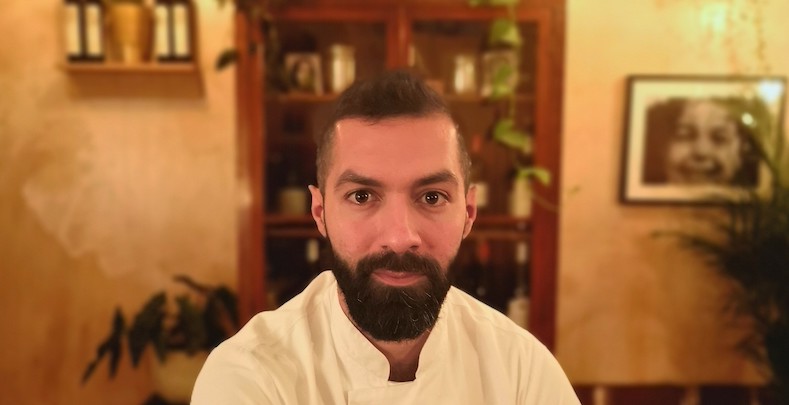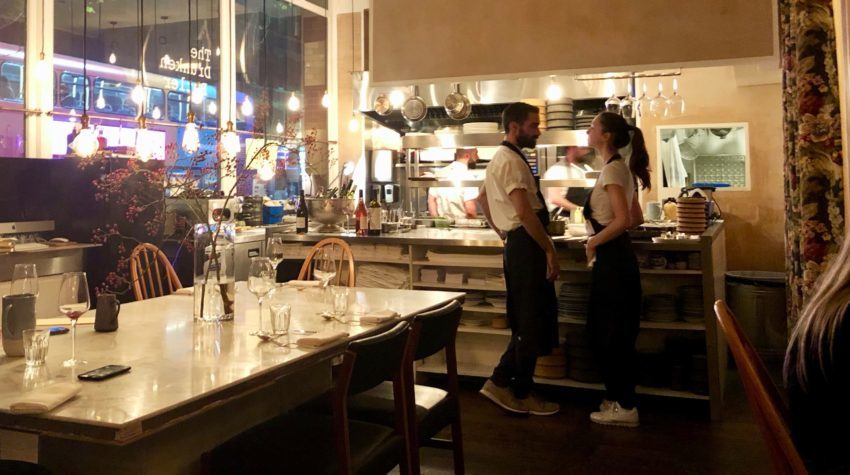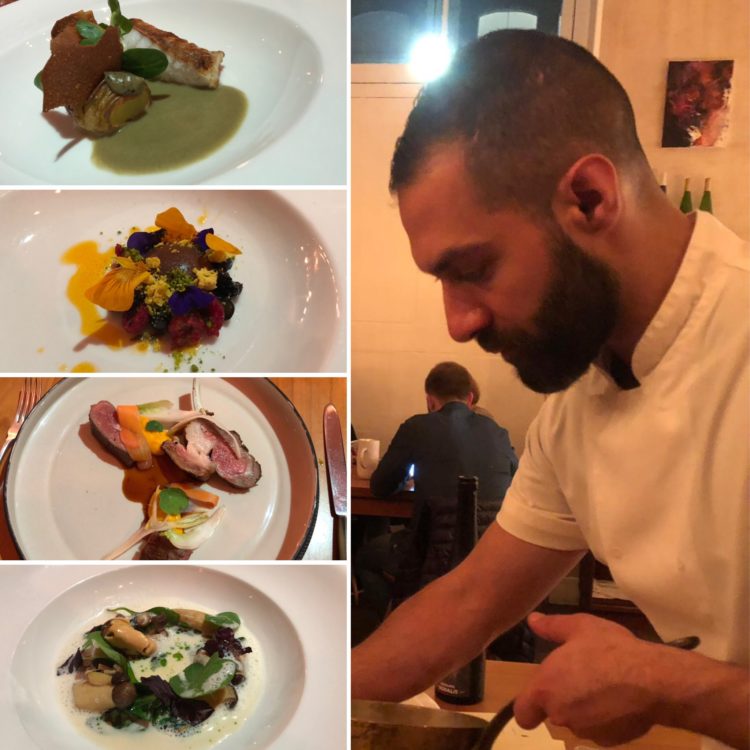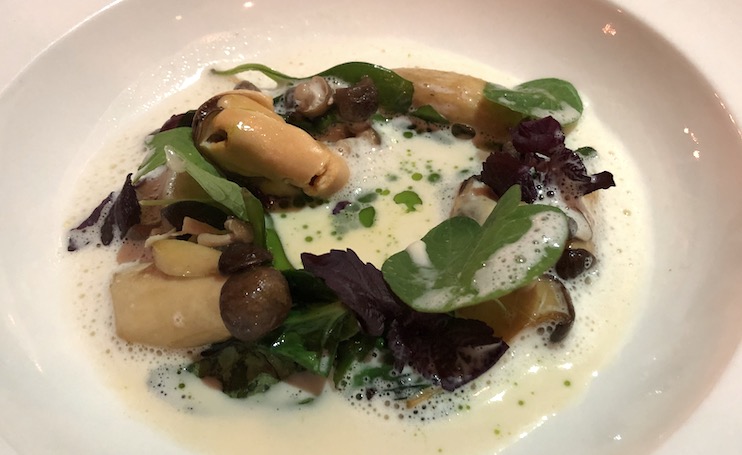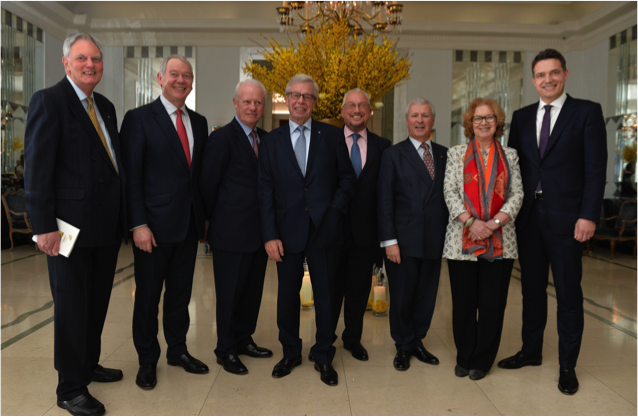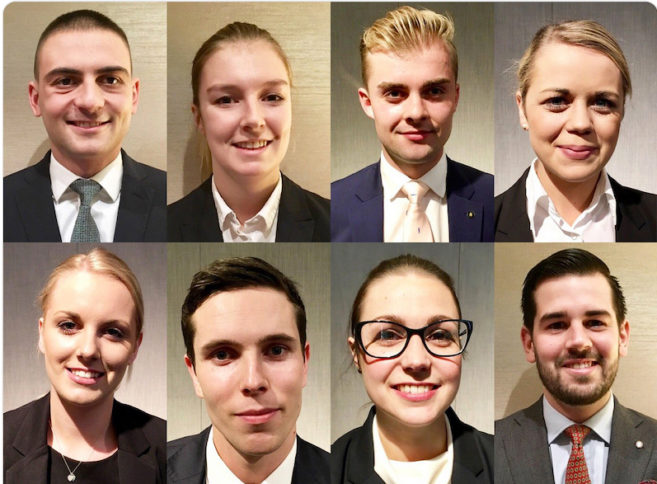
Maidenhead, a prosperous Berkshire town on the banks of the Thames, has long existed in a gastronomic vacuum. Its entries in the restaurant guides have been few and far between. Even the recent improvements to the town centre have culminated in the opening, on a prime site, of another chain eatery. This has been a major anti-climax to the town’s culinary fortunes or is that misfortunes?
However, neighbouring towns and villages – Marlow, Henley, Cookham, Burchetts Green, White Waltham, Paley Street and, of course, Bray – have filled the gap; that is, until this October, when Roux at Skindles opened its doors.
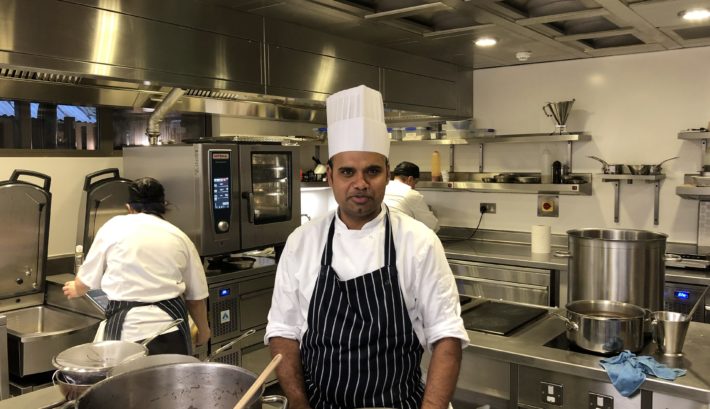
Located on the east side of the Thames, adjacent to Maidenhead Bridge, and at the entrance to a prestigious Berkeley homes development, it stands of the site of the legendary Skindles Hotel, which had become derelict by the mid-1990s. The handsome three storey yellow bricked building finished to a high specification houses a spacious reception, brasserie and terrace on the ground floor; a cocktail bar and balcony on the first; and the Chairman’s Room for private dining on the second floor. The brasserie itself has a raised area with banquette seating opposite the open kitchen and a brighter area, the floor to ceiling windows of which give views of the terrace and Thames. Undressed, well-spaced tables have a capacity for 80 covers.
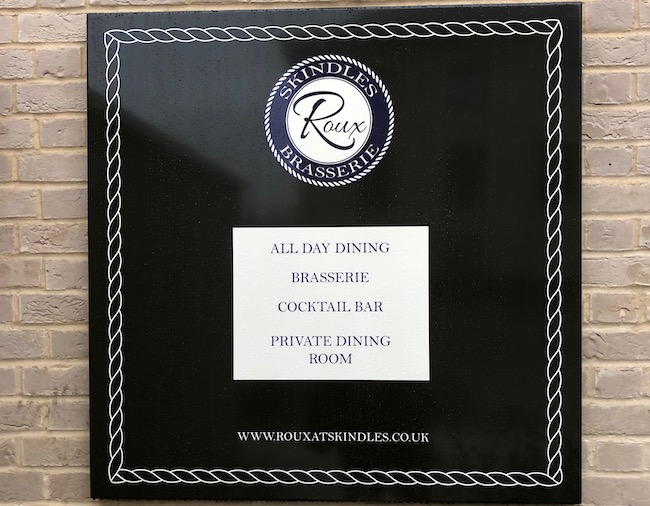
Roux at Skindles is the joint project of Michel Roux Senior, OBE, and his son Alain, Chef Patron. Their aim is not fine dining – the surrounding area is crowded with Michelin Stars, including the Roux’s triple starred Waterside Inn – rather to showcase classic and contemporary French brasserie cooking at reasonable prices in comfortable, convivial and relaxed surroundings. In typical French tradition, children are welcome with the provision of special menus. Breakfast, afternoon tea (May to September), lunches and evening bites are also available in the Cocktail Bar, allowing guests flexibility of choice.
With Maxime Walkowiak as General Manager and Rajkumar Holuss as Head Chef, both with considerable experience at the Waterside Inn, the impeccable Roux stamp is firmly embedded from the start. It is also seen in such dishes as “grandpa Benoit Roux’s country pate with sourdough” on the menu.
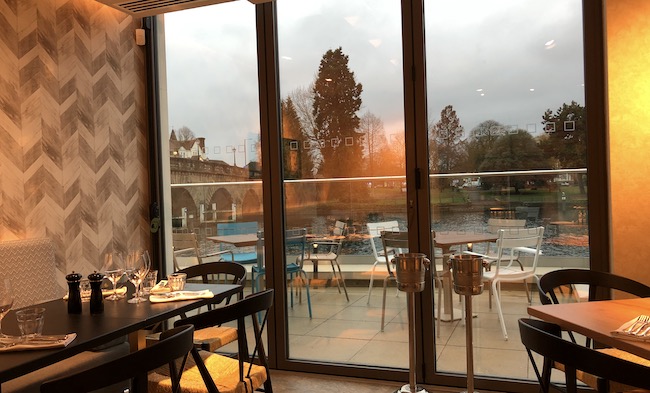
The well-judged carte allows a good choice for diners without putting undue pressure on the kitchen. Nine starters are priced from £8.50 to £14; ten mains from £15 to £27; (sides £3.50); and six desserts £5 to £8.50. There are also daily specials and a festive course set menu, (£36) with four choices at each stage. Skilful cooking and simple presentation do full justice to top quality ingredients. Classics include fish soup, snails with parsley and garlic butter, moules marinieres and coq au vin, whilst Merrifield duck pie and goat’s cheese soufflé are amongst the more innovative creations
The following comments refer to dishes sampled on two lunch time visits.
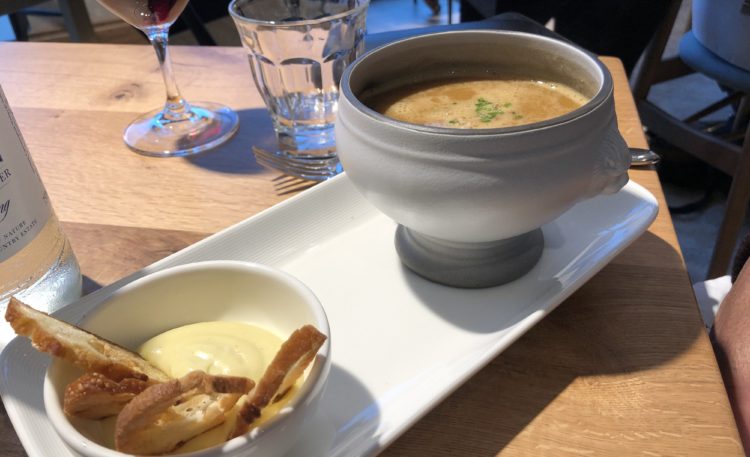
Fish soup had good colour and a pleasing depth of flavour. Served with croutons and rouille, which added substance and garlicy richness, this brasserie stalwart was suitably hearty and warming.
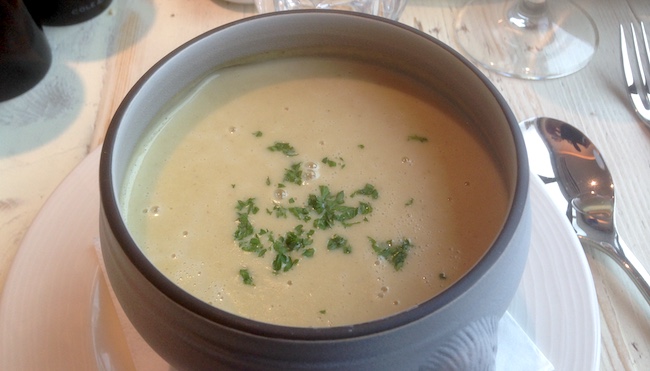
Less robust but equally satisfying was a daily special of clam chowder. This smooth and creamy soup showcased the delicate sweetness of its seafood ingredient.
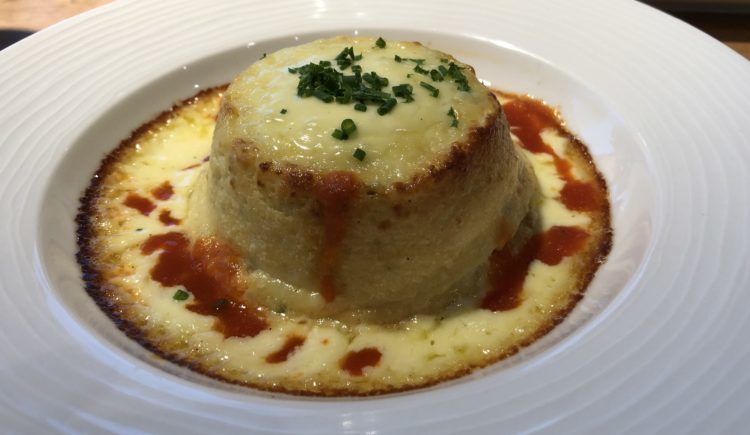
For those who find goat’s cheese too cloying, a starter of warm goat’s cheese soufflé should win them over. Light, fluffy and full of flavour, it was twice baked and mounted on a tomato coulis enriched with a little cream. Reminiscent of the Roux’s soufflé suissesse, but less rich, the combination of tastes and textures was most satisfying.
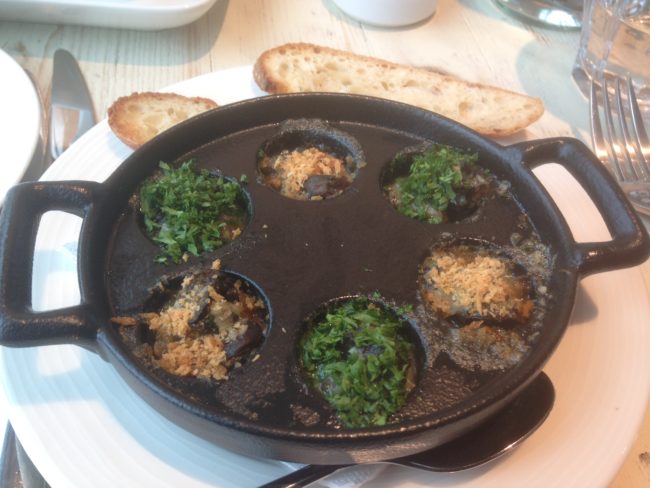
Less successful was a starter of 12 Burgundy snails which needed more garlic and parsley butter for dunking – an essential ritual of this popular dish.
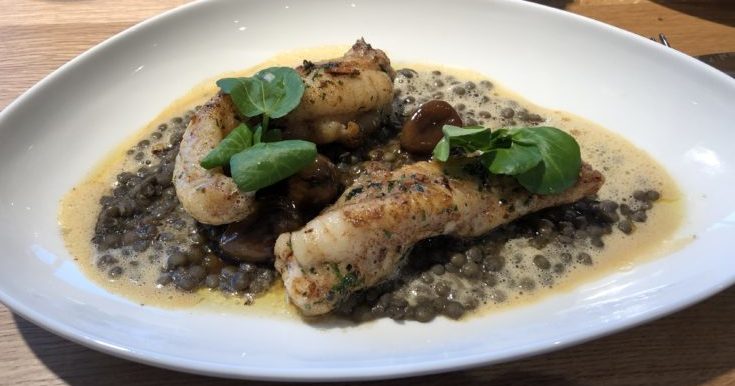
A special of the day main course saw two Monkfish fillets accurately timed to retain their mild lobster-like flavour and firm texture. A rich, earthy sauce, based on lentils and chestnuts worked well with the fish.
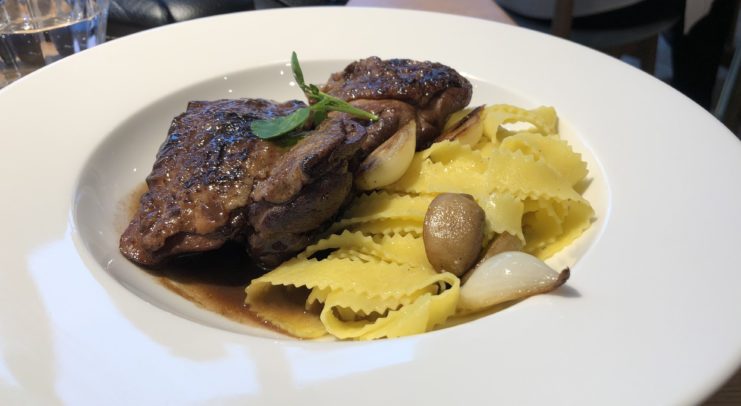
Coq au vin featured two flavoursome thighs – surely the sweetest part of the bird – properly garnished with lardons, mushrooms and baby onions. Silky, fresh tagliatelle pasta helped to mop up the intensely reduced red wine sauce.
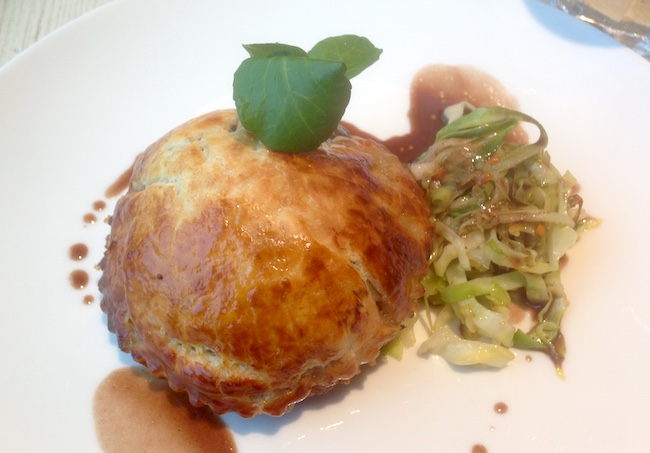
Another successful main was Merrifield duck pie, with a golden dome of crisp puff pastry – similar to a pithivier without the spiral markings – and a well-seasoned duck farce filling. Suitably partnered with sauce Rouennaise, a red wine Bordelaise sauce enhanced with duck livers, this rich combination was balanced by the freshness of sautéed sweetheart cabbage.
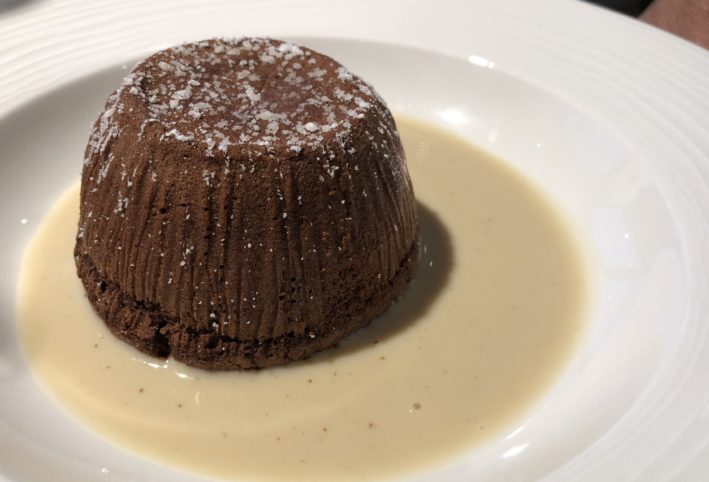
For dessert, warm chocolate fondant proved a winner. Precisely timed to produce a decadent, oozing centre, it sat on a pool of coffee sauce, both elements happily being not too sweet.
Rum baba with yuzu cream had a light texture but would have been improved with a touch more rum in its sugar syrup.
The wine list sees prices rise quite steeply, although there is a good selection by the glass.
A meal at Roux at Skindles impresses in its range of technically accomplished dishes, and its knowledgeable, attentive yet unobtrusive service. Attractive pricing and the vibrant buzz of contented diners in a full restaurant, as was the case in both of my visits, will also encourage repeat custom. Overall, this new and much awaited addition to a previously arid dining scene, cannot fail to be successful. Fine Dining Guide will certainly return and monitor its progress with interest.




